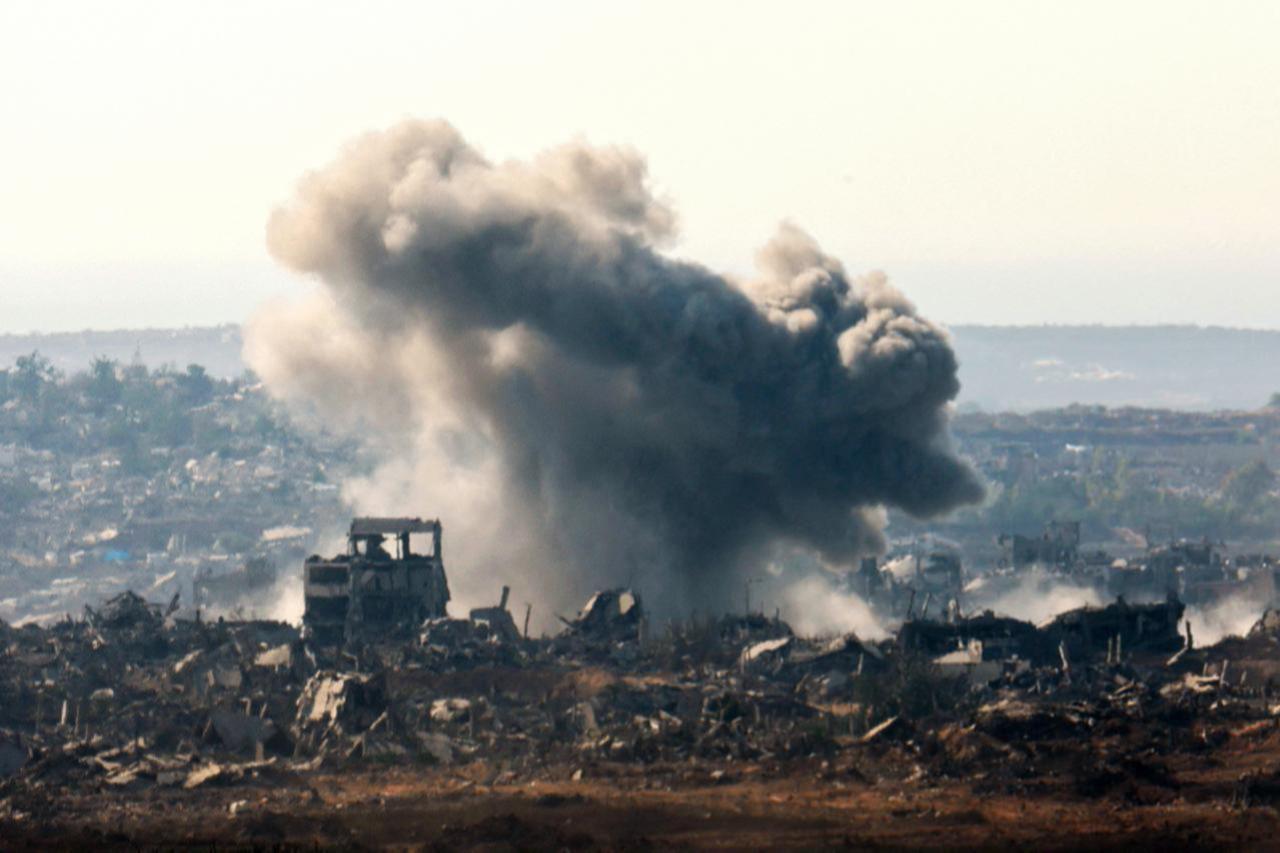
In a single day, the global spotlight shifted sharply toward the Palestinian issue, as a cascade of announcements from Western capitals seemed to rewrite the script of a historic genocide.
In Canberra, Prime Minister Anthony Albanese stepped before the cameras to declare that Australia now officially recognizes the State of Palestine as an independent entity.
Not long after, in Ottawa, Prime Minister Mark Carney denounced Israel’s violations of international law, framing Canada’s recognition as a step toward realizing a two-state solution.
Across the Atlantic, London finally spoke. U.K. Prime Minister Keir Starmer called the destruction in Gaza "unacceptable," openly criticized Israel’s bombardments, and sent an official recognition letter to Mahmoud Abbas.
Meanwhile, Lisbon added its voice: Portuguese Foreign Minister Paulo Rangel described the government’s decision—backed by consensus from the president, parties, and society at large—as a "matter of conscience."
The Palestinian Authority and Arab nations hailed the move, while Hamas demanded immediate action to halt the violence. Israel reacted sharply: Prime Minister Benjamin Netanyahu condemned the decisions as “rewarding terrorism” and threatened annexation in the West Bank.
In just 24 hours, the coordinated actions of four nations placed Palestine at the center of global attention, opening a new chapter in its long quest for international recognition.
Speaking to Türkiye Today, Associate Professor Furkan Kaya offered insight into the U.K.’s approach: "The U.K.’s relationship with the U.S. under Starmer could be more institutionalized. Especially regarding the Ukraine war, China policy, and Middle East balance, London may not want to align completely with Washington."
"The Labour Party’s domestic emphasis on human rights and international law could, in some cases, contradict U.S. policy on Israel."
"This isn’t a strategic break, but it could appear as a 'tactical friction,'" Kaya added.
On the practical effects of recognition, Kaya emphasized, "The recognitions are symbolically important, strengthening Palestine’s diplomatic legitimacy. But on the ground—lifting the Gaza blockade, halting settlements, or accelerating a two-state solution—it doesn’t directly translate."
"Israeli annexations in the West Bank and Golan Heights continue. Still, these recognitions will increase international pressure on Israel, particularly in Europe, and could create a domino effect. Support for Palestine’s full U.N. membership may also broaden," Kaya noted.
Addressing Israel’s perspective, Kaya said, "Israel long assumed Canada would remain an unconditional supporter. Losing that expectation caused significant disappointment in Tel Aviv. Israel’s rhetoric may harden further, aiming to mobilize domestic and Western public opinion, while also reinforcing its dependence on the U.S. to maintain support."
On implications for Türkiye and the region, Kaya added, "As a country that recognized Palestine long ago, Türkiye gains diplomatic leverage. In the Arab world—especially Jordan, Egypt, and the Gulf—this could spark new debates. Regional polarization may increase, and anti-Israel blocs could strengthen, putting the sustainability of projects like the Abraham Accords into question."

Associate Professor Selim Han Yeniacun offered additional insight: “Traditionally, the U.K. has centered its policy on the ‘special relationship’ with the U.S. Under Starmer, however, especially regarding Gaza and Palestine, London may diverge from Washington at times.
The contrast between Trump-era unconditional support for Israel and the U.K.’s recognition introduces potential visible frictions in U.S.–U.K. relations, not just bilaterally, but also within NATO and the Atlantic alliance.
Considering the Ukraine crisis, the U.K. may seek renewed global influence, linking European security frameworks with Middle East issues.”
Labour Party member Starmer was elected as the U.K.'s leader.
Prime Minister after a landslide victory in July 2024.
On Western Bloc countries' recognition of Palestine, Yeniacun said, "The more states recognize Palestine, the more bilateral and multilateral cooperation will increase, boosting defense, trade, and diplomatic capacities."
"Moreover, Israel’s war crimes and massacres become more visible before international law institutions, forcing Tel Aviv to account more publicly for its actions."
He also emphasized the potential transformation within Israel: "Israel had long assumed Canada would not recognize Palestine. Once that certainty vanished, Israel faced increased rhetorical aggression and deeper isolation in Western public opinion. Israel’s policies in Gaza already caused legitimacy crises at the UN and international law levels; now recognition decisions from within the West intensify this pressure."
Regarding opportunities for Türkiye, he added, "Türkiye has long called for recognition of Palestine. Actions by the U.K. and Canada reinforce Türkiye’s positions and contribute to a more equitable, multipolar regional balance."
"Furthermore, Türkiye’s defense and trade cooperation with Palestine can expand within this broader international framework."
Associate Professor Fatih Fuat Tuncer commented on the decisions by the U.K., Australia, Canada and other countries to recognize Palestine: "These recognition decisions clearly constitute a historic morale boost and a symbolic victory for the Palestinian people. "
"While they strengthen Palestine’s presence in the arenas of international law and diplomacy, in practical terms, they cannot overcome the decades-long Israeli occupation and the apartheid-like policies that systematically obstruct Palestinians’ right to self-determination."
"One must not forget that the greatest obstacles to Palestine’s independence remain Israel’s settler-colonial policies and the structure of the U.N. and the Security Council."
"These recognition decisions are significant, yet for them to generate tangible change on the ground, concrete measures must follow—ending Israel’s occupation and halting the genocide in Gaza are indispensable," Tuncer added.
Addressing the potential U.S. response, Tuncer noted, "The United States has traditionally been Israel's closest ally and staunchest advocate. It is therefore unsurprising that Washington might respond cautiously or even critically, characterizing these decisions as 'premature' or 'poorly timed.'
This posture can give the impression that the U.S. is complicit in the ongoing genocide. Yet, there is also the prospect of Washington finding itself increasingly isolated on the global stage, facing differing approaches from its allies."
"The U.K. under Starmer may experience a brief tension with Washington over the recognition of Palestine; however, this is unlikely to undermine the fundamental alliance between the two. The U.K.'s move can be seen as a diplomatic divergence rather than a rupture of long-standing bilateral relations," Tuncer added.
On the limited short-term gains for Palestine, he added, "Given the current international framework, expecting dramatic immediate changes on the ground is unrealistic. These recognitions do not alter Israel's de facto control over Palestinian territories.
The professor said that the long-term implications could be profound, potentially increasing international pressure, further isolating Netanyahu’s government, accelerating Palestine’s bid for full U.N. membership, and sustaining hope for a two-state solution.
"To move beyond symbolism, Palestinian political actors must consolidate internal unity, and recognizing states must maintain continuous international pressure on Israel."
Regarding Israel's likely response, he observed, "Israel will, as usual, employ the familiar harsh rhetoric against these recognition decisions. Recall that it has previously labeled the U.N. and its secretary-general as terrorists.
Yet, the genocide in Gaza and repeated breaches of international law have steadily eroded Israel's deterrent capacity. Canada and the U.K., despite anticipated Israeli protests, will not retreat.
On the contrary, this could further isolate Israel on the international stage. Israel may attempt a countermove, backed by U.S. support, but its impact on the ground will remain limited."
He highlighted the diplomatic role of Türkiye and regional actors, saying that Türkiye, having recognized Palestine long ago, would gain diplomatic leverage.
He noted that President Erdogan’s advocacy for a two-state solution within the 1967 borders, previously expressed at the U.N., was now being reiterated by the West.
He added that regional actors, particularly Arab leaders, could no longer remain silent but needed to articulate clearer positions and take concrete steps.
According to him, such diplomatic pressure could recalibrate the balance against Israel and intensify regional polarization.